Here is a snap of my database.
Both col1 and col2 are declared as int.
My ComputedColumn currently adds the Columns 1 and 2, as follows...
col1 col2 ComputedColumn
1 2 3
4 1 5
Instead of this, my ComputedColumn should join the columns 1 and 2 (includimg the '-' character in the middle) as follows...
col1 col2 ComputedColumn
1 2 1-2
4 1 4-1
So, what is the correct syntax?
